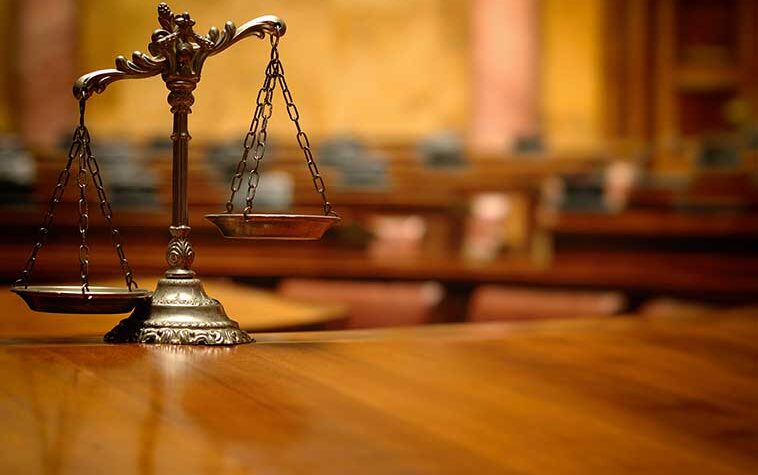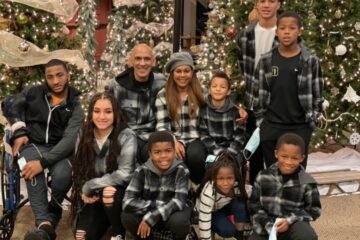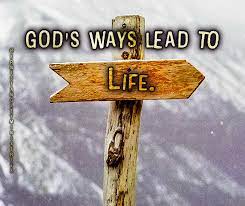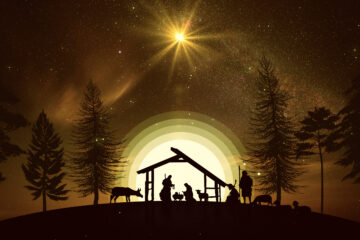“All Rise! Oyez, oyez! All persons having business before this Court, draw nigh, give attention and ye shall be heard. God save the United States and this Honorable Court.”
This ancient “Call to Order” dates back to medieval England. The word “oyez” (pronounced “oyea”) traces its origin to the French word ouïr, “to hear” and translates into English as “hear ye”. It is still used today in the Supreme Court of the United States and in courts throughout the country.
The words “God save this Court” is an invocation of divine aid and supervision over the court’s proceedings. It is, in its essence, a form of prayer, a plea for God’s intervention. While the invocation is largely ceremonial, it has not been without its share of controversy over the years.
In 1991, I was called upon to help represent a judge in North Carolina, Judge Bill Constangy, who opened his court each day with the following expanded version of this invocation to deity.
O Lord, our God, our Father in Heaven, we pray this morning that you will place your divine guiding hand on this courtroom and that with your mighty outstretched arm you will protect the innocent, give justice to those who have been harmed and mercy to us all. Let truth be heard and wisdom be reflected in the light of your presence here with us today. Amen.
Judge Constangy was sued in federal court by the North Carolina Civil Liberties Union which claimed that this invocation to deity violated the Establishment Clause of the First Amendment. I argued on his behalf that the opening invocation served a clear, secular purpose of providing a solemn and dignified atmosphere and of reminding those in attendance of the court’s search for truth and justice. Ultimately, the Fourth Circuit Court of Appeals ruled the prayer unconstitutional.
Opening court and legislative proceedings with prayer has been a part of our American tradition since the founding of our republic. Benjamin Franklin’s famous appeal for the appointment of a chaplain for Congressional meetings was so that he could call upon “the Creator of the universe, and the Governor of all nations, beseeching Him to preside in our council, enlighten our minds with a portion of heavenly wisdom, influence our hearts with a love of truth and justice, and crown our labors with complete and abundant success.” Franklin argued: “If a sparrow cannot fall to the ground without His notice, is it probable that an empire can rise without His aid?”
In the celebrated case of Marsh v. Chambers (1983), the Supreme Court held that the widespread practice of opening a legislative session with a prayer does not violate the Establishment Clause. In its ruling, the court explained that legislative prayer has become “part of the fabric of our society” through its “unambiguous and unbroken history of more than 200 years.” This long history, the court reasoned, demonstrates that legislative prayer poses no real threat of establishing religion.
Recently, two caucuses at the Democratic National Convention opened their sessions with a recitation of the Pledge of Allegiance that omitted the words “under God”. Rumors quickly spread that the DNC favored taking God out of the Pledge of Allegiance. While this was never the case, the omission by these two Democrat caucuses has sparked again some debate over whether the words “One Nation, Under God” is unconstitutional.
In 1954, Congress amended the Pledge by adding the words “under God.” It did so, as the Committee Reports noted, because “from the time of our earliest history our peoples and our institutions have reflected the traditional concept that our Nation was founded on a fundamental belief in God.” This practice was later challenged by an atheist parent in a case called Newdow v. Congress in 2014. Writing for the Court, Justice O’Connor found the recitation of the Pledge of Allegiance in public schools to be a constitutionally acceptable act of ceremonial deism. She argued that the phrase “under God” in the pledge has been in widespread public use ever since Congress added these words to the pledge in 1954. O’Connor observed that the tone and content of the pledge suggest that reciting it serves as an act of patriotism, not one of worship.
Undoubtedly there are those today who would favor abolishing “God save this Court” and omitting “under God” from our Pledge of Allegiance and our coins. Those who take this view overlook the historical fact that, as Justice Douglas pointed out in Zorach v. Clausen, “we are a religious people whose institutions presuppose a Supreme Being.”
Civil courts today are society’s last bulwark against tyranny and injustice. Without them, our system of resolving disputes would devolve to a new pandemic of vigilantism and lawlessness not dissimilar from the riots taking place in several of our major cities. As an attorney, when called upon in court to bow my head as the bailiff cries “God save this Court”, I am humbled to join in this fervent plea to God to grant mercy and wisdom to the court. Now, more than perhaps at any time in our history, this precedent is both appropriate and timely.
Larry L. Crain, Crain Law Group, PLLC www.crainlaw.legal













